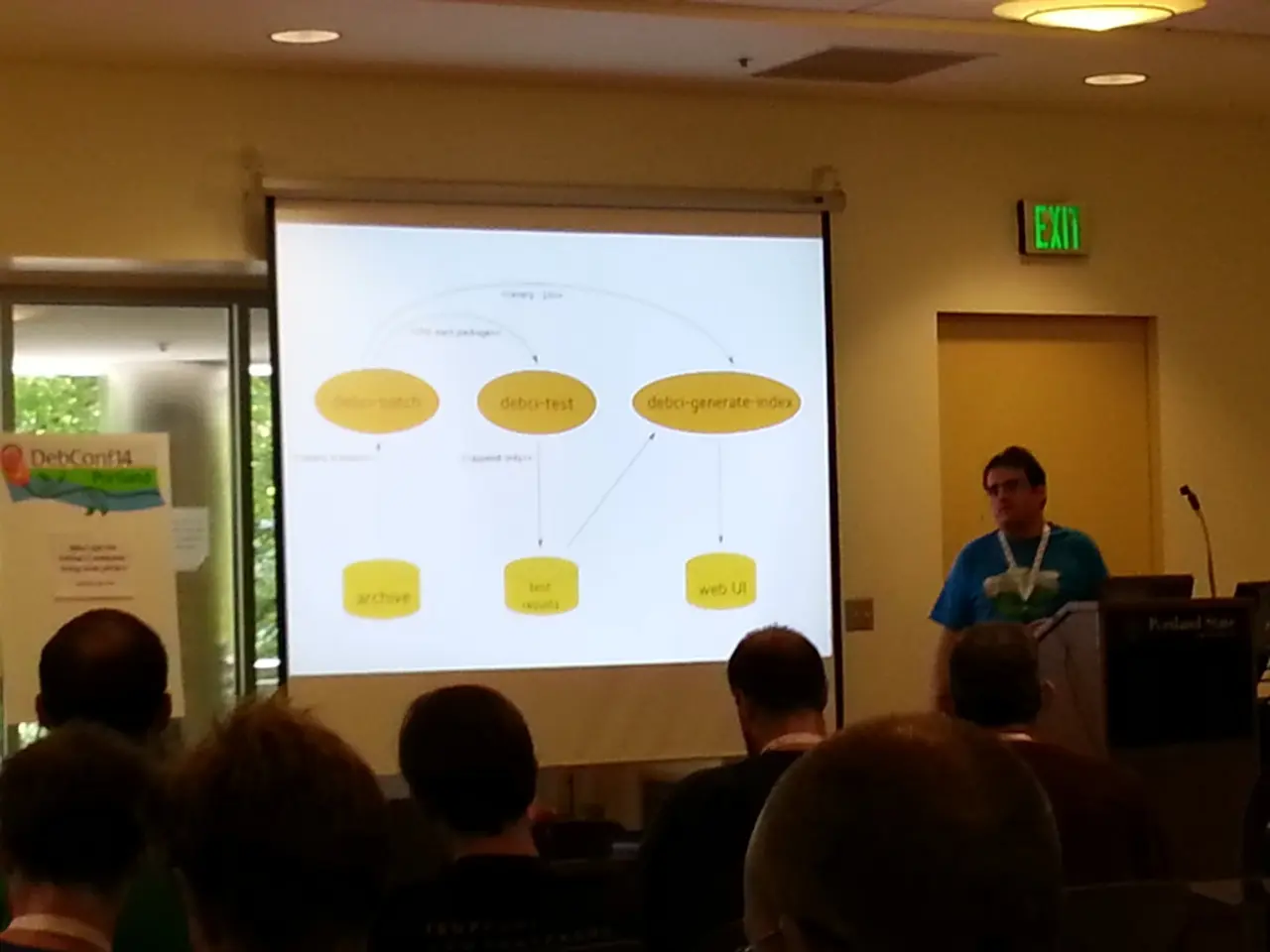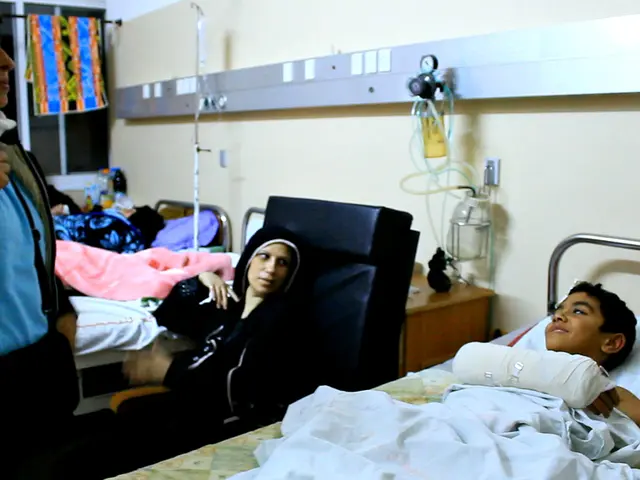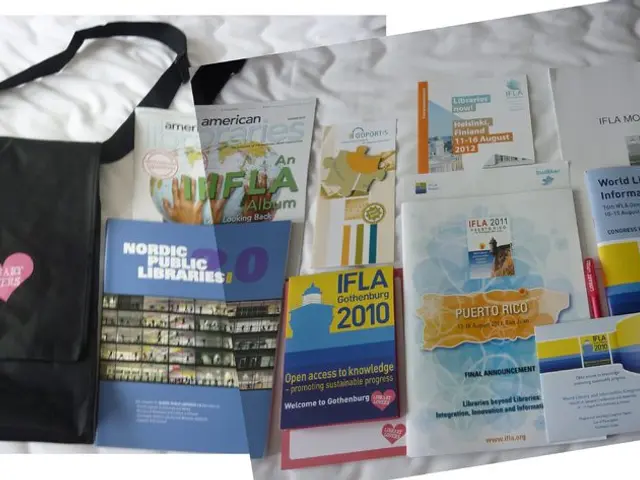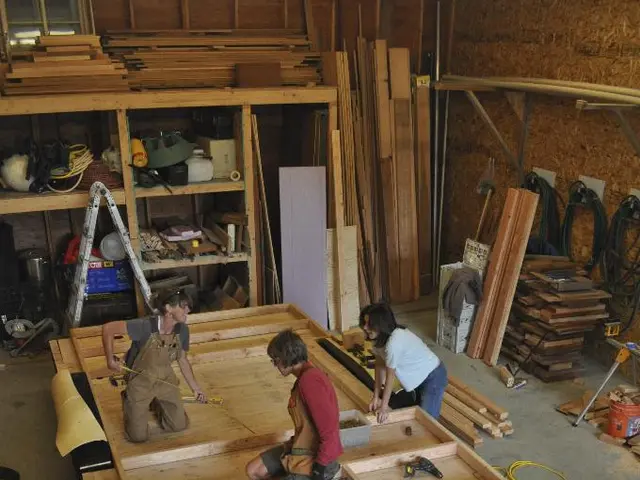Opeoluwa Akinola's endeavor: Equipping visually impaired individuals with screen readers, audio-described software, and movies for enhanced accessibility
In a country where an estimated 25 million people live with disabilities, and visually impaired individuals face distinct challenges in accessing equitable educational opportunities and meaningful employment, the Accesstech Innovation and Research Centre in Lagos, Nigeria, is making a significant impact.
Founded by Opeoluwa Akinola, a visually impaired individual diagnosed with retinitis pigmentosa at the age of three, Accesstech offers digital skills training to improve academic and career prospects for people with disabilities. Akinola, who started by mastering a talking computer owned by a friend who returned from the UK in 1992, now teaches visually impaired individuals how to use technology for employment and leisure purposes. Students learn to use applications such as audio and digital editing software, website applications, Microsoft PowerPoint, Excel, Word, text-to-speech, speech-to-text, and artificial intelligence tools.
One of Akinola's students, Divinegift Usman, is a shining example of the centre's success. Usman, who is visually impaired, pursued a degree in computer science at the Federal University of Technology, Minna, relying on friends who recorded lectures and notes on his phone. After his graduation, he enrolled in Accesstech and was introduced to screen reader technology. Usman has since become a tutor at Nigeria's National Eye Centre in Kaduna, and he has also launched his nonprofit, Zions Assistive Tech Solutions, in 2022.
Usman's journey is a testament to the challenges faced by visually impaired individuals in Nigeria. Despite ongoing efforts to improve inclusion, they still encounter significant barriers in both employment and education opportunities.
In terms of employment, the underrepresentation of persons with disabilities (PWDs) in both public and private sectors remains a key issue. Nigeria’s National Commission for Persons with Disabilities (NCPWD) recently launched the “Access to Work Scheme” to secure at least 5% employment representation for PWDs, including the visually impaired. However, many digital and administrative systems, including banking and government services, rely on visual verification methods that exclude visually impaired users.
In education, while the NCPWD maintains that education is a right, not a privilege, and commits to inclusion in classrooms and lecture halls, prevailing lack of digital accessibility standards continues to hinder independent learning and participation for visually impaired students. The Federal Nigeria Society for the Blind (FNSB) is actively working to secure national accreditation for its Vocational Training Centre diplomas to ensure that blind learners receive certificates recognized by employers.
Accesstech operates on a dual model, training corporate clients who pay for the training, and serving individuals who cannot afford to pay. The centre's target for a one-year project cycle was to train 200 people, and by the end of the cycle, 238 people had completed the program.
Government support for centres like Accesstech and Usman's remains complicated, with the sector not being regulated, and the government sending obsolete devices. Nevertheless, the centre continues to make a difference, empowering visually impaired individuals like Usman to live independently and contribute to society.
[1] National Commission for Persons with Disabilities (NCPWD) [2] International Labour Organisation (ILO) [3] Federal Nigeria Society for the Blind (FNSB) [4] World Bank Data
- The Accesstech Innovation and Research Centre, with its focus on technology and education-and-self-development, is striving to fund innovation that addresses the lifestyle challenges faced by visually impaired individuals in Nigeria, particularly in terms of employment and education opportunities.
- With the support of organizations like the National Commission for Persons with Disabilities (NCPWD), International Labour Organisation (ILO), and Federal Nigeria Society for the Blind (FNSB), Accesstech is dedicated to bridging the gap in access to work schemes and digital accessibility standards, thereby promoting a more inclusive society and equitable funding for technology that can transform the lives of individuals with disabilities.
- The success stories of students like Divinegift Usman, who has become a tutor and launched his own nonprofit, serve as a testament to the potential impact of funding in technology and education-and-self-development, demonstrating that with the right resources, those with disabilities can overcome challenges and contribute to innovation in their communities.




